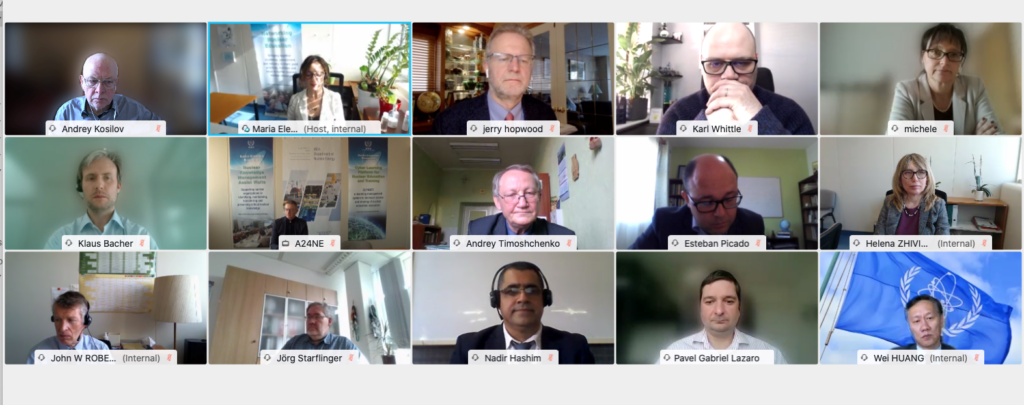 Regional education networks have joined forces with national networks to advance their cooperation in nuclear education, training, research and outreach. On February 25, 2021 a Collaboration Agreement was signed by regional networks – the Asian Network for Education in Nuclear Technology (ANENT), the African Network for Education in Nuclear Science and Technology (AFRA-NEST), the European Nuclear Education Network (ENEN), the Latin American Network for Education in Nuclear Technology (LANENT), the Regional Network for Education and Training in Nuclear Technology (STAR-NET) and national educational groups — the UK Nuclear Technology Education Consortium (NTEC), the Belgium Nuclear Higher Education Network (BNEN, SCK•CEN) and the University Network of Excellence in Nuclear Engineering (UNENE).
Regional education networks have joined forces with national networks to advance their cooperation in nuclear education, training, research and outreach. On February 25, 2021 a Collaboration Agreement was signed by regional networks – the Asian Network for Education in Nuclear Technology (ANENT), the African Network for Education in Nuclear Science and Technology (AFRA-NEST), the European Nuclear Education Network (ENEN), the Latin American Network for Education in Nuclear Technology (LANENT), the Regional Network for Education and Training in Nuclear Technology (STAR-NET) and national educational groups — the UK Nuclear Technology Education Consortium (NTEC), the Belgium Nuclear Higher Education Network (BNEN, SCK•CEN) and the University Network of Excellence in Nuclear Engineering (UNENE).
At the virtual meeting dedicated to signing of the Agreement the STAR-NET was represented by Andrey Timoshchenko, STAR-NET Vice President and Andrei Kosilov, STAR-NET Managing Director.
“Nuclear educational networks benefit from working together, sharing good practices, resources and opportunities for capacity building and effective nuclear education,” Huang Wei, Director of the IAEA Division of Planning, Information and Knowledge Management, said during the signing ceremony facilitated by the IAEA. “By working together, these networks contribute to the promotion, management and preservation of nuclear knowledge and help to ensure that talented and qualified personnel are available for the safe and sustainable use of nuclear technology.”
Under the new agreement, eight networks pledged to collaborate on a variety of topics. These include leadership and management skills; research and development on nuclear education and nuclear technology; sharing information, teaching materials and tools for education, training and outreach related to nuclear technology; and exchanging students, teachers and researchers. The agreement’s work plan will be reviewed and agreed by the networks annually.
“This will enable the global education community to further capitalize on the results and experiences gained not only by the regional networks, but also national consortia and their robust and long-established ties within the nuclear industry,” said Huang Wei.
Membership and terms vary from network to network, but typically, members are academic institutions within the individual regions and sometimes beyond. Networks have coordinating bodies for their governance and working groups that focus on specific categories of activities.
Working together “allows us to provide for a common use the best practices we have in nuclear education and exchange information, teaching materials and advanced tools for education,” said Andrey Timoshchenko. “STAR-NET and member-universities compliments existing international initiatives including the initiatives of the IAEA by focusing on the area of education and training and will address problems related to nuclear technology, education, training and outreach. The STAR-NET could benefit from the experience gained in national and regional education and knowledge networks and provides its own achievements for international educators.”